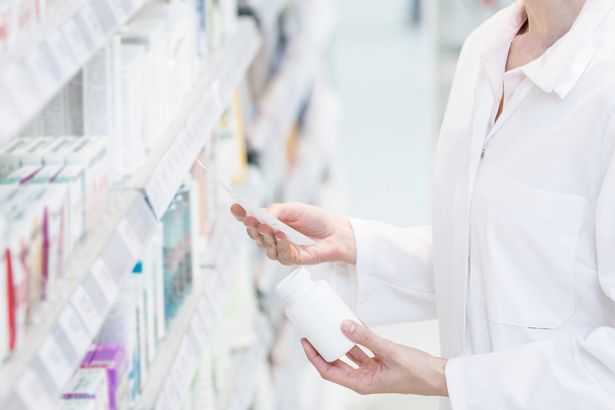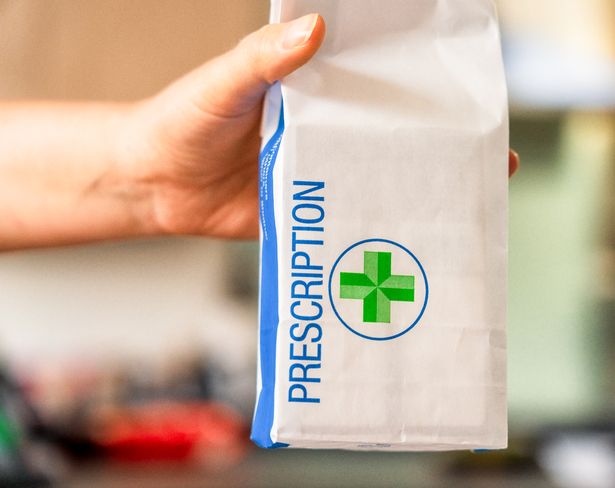A wide variety of people across the UK could be eligible for free NHS prescriptions – from pensioners aged 60 and over to benefit claimants and those with specific medical conditions Many people could be entitled to a free NHS prescription(Image: Getty Images)
Many people could be entitled to a free NHS prescription(Image: Getty Images)
A broad range of people across the UK could be entitled to get their prescriptions at no cost through the NHS. Latest figures from the NHS Business Services Authority (BSA) show that community pharmacies throughout England dispensed 1.16 billion prescriptions in 2024/25.
This marks a 4% rise from the year before and adds to a four-year consecutive increase in the number of people getting prescriptions. While some folks might be prescribed medication via the NHS, they might still have to foot the bill for it, depending on their personal circumstances.
Nonetheless, numerous people across the UK could get their prescriptions without having to pay a penny for a variety of reasons. However, guidance from the NHSBSA emphasises that it’s up to the patient to verify if they’re eligible to claim a free prescription.
 The number of presciptions being dispensed has increased(Image: Getty Images)Who is eligible for free prescriptions
The number of presciptions being dispensed has increased(Image: Getty Images)Who is eligible for free prescriptions
According to the NHS, the following groups can claim a free prescription:
Aged 60 or overAged 16 and underAged between 16 to 18 and in full-time educationAre pregnant or have had a baby in the previous 12 months while owning a valid MatEX certificateHave a specified medical condition and a valid MedEx certificateHave a continuing physical disability that prevents you from going out without help from another alongside a valid MedEx certificateHold a war pension exemption certificate and the prescription is for your accepted disabilityAre an NHS inpatient
You’re also entitled to free prescriptions if you or your partner (including civil partner) claim, or you’re under the age of 20 and the dependant of someone claiming:
Income Supportincome-based Jobseeker’s Allowanceincome-related Employment and Support AllowancePension Credit Guarantee CreditUniversal Credit and meet the criteriaFree prescriptions for specific medical conditions Some specific medical conditions could be eligible for a free prescription(Image: Getty Images)
Some specific medical conditions could be eligible for a free prescription(Image: Getty Images)
People with certain medical conditions are eligible for NHS prescriptions. Medical exemption certificates are credit-card-size cards which allow you to receive free prescriptions.
They are issued if you have any of the following conditions:
Cancer, including the effects of cancer or the effects of current or previous cancer treatmentA permanent fistula (for example, a laryngostomy, colostomy, ileostomy or some renal dialysis fistulas) requiring continuous surgical dressing or an applianceA form of hypoadrenalism (for example, Addison’s disease) for which specific substitution therapy is essentialDiabetes insipidus or other forms of hypopituitarismDiabetes mellitus, except where treatment is by diet aloneHypoparathyroidismMyasthenia gravisMyxoedema (hypothyroidism requiring thyroid hormone replacement)Epilepsy requiring continuous anticonvulsive therapyA continuing physical disability that means you cannot go out without the help of another person (temporary disabilities do not count, even if they last for several months)How to apply for a medical exemption certificate
To apply for a medical exemption certificate, request a form directly from your doctor. Once you have filled this in, your GP will sign a form to verify that you are eligible for the certificate.
The certificate becomes valid one month prior to the date the NHSBSA receives your application form. The MedEx is valid for five years, after which it must be renewed.
You can check if you’re eligible for a free prescription here.

